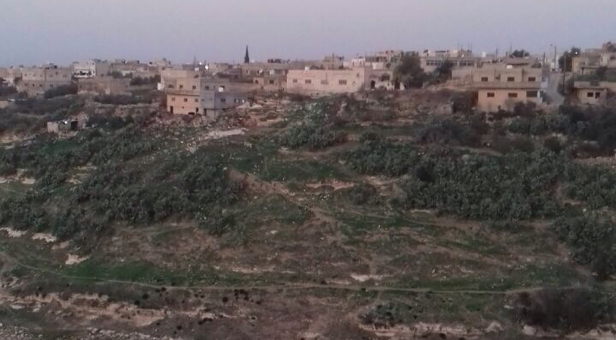On Friday the 18th of June 2021, from 2pm - 5pm (GMT), Refugee Hosts' PI, Prof. Elena Fiddian-Qasmiyeh and writer-in-residence, Yousif M. Qasmiyeh, spoke at the ReConnect event 'Supporting Refugees into Higher Education'. Yousif M Qasmiyeh read from his acclaimed collection of poetry 'Writing the Camp' and Prof. Fiddian-Qasmiyeh critically discussed the notion of “voice”…
Tag: voice
‘How Did it Feel to Ask those Questions?’ – An Email Exchange about Experiencing Research on Displacement.
In this post Hanna Schneider and her colleague Israa Sadder share an email exchange in which they discuss conducting research with Syrian refugees living in Jordan. The exchange describes the relationships developed both between researchers and intermediaries, and between researchers, intermediaries and their interlocutors. These research relationships raise multiple questions regarding how working as an…
“To embroider the voice with its own needle”
Marking the launch of the inaugural issue of the Migration and Society journal, in this piece Yousif M. Qasmiyeh (Refugee Hosts' Writer in Residence and Creative Encounters Editor of the new journal) sets out one of the aims of the journals' Creative Encounters section; to problematise the notion of voice. The piece also presents five poems…
Mobility, Hope and the ‘Appropriation’ of Space: Reflections from a PhotoVoice Project
Typically, photographs of and about displaced peoples focus on individual suffering victims, acts of individualised resilience, or tropes that resonate with the wider genre of humanitarian narratives. As a result, the Refugee Hosts project has adopted what Dr Elena Fiddian-Qasmiyeh has termed a "Spaces and Places, Not Faces" approach to refugee-photography. As Michelle Lokot explores in…
Giving Refugees a Voice? Looking Beyond ‘Refugee Stories’
How does UNHCR narrate refugee stories through its official media? In this piece, Leonie Harsch adopts a critical approach, and builds on a number of important arguments put forward by researchers, to argue that the telling of 'refugee stories' by humanitarian organisations can sometimes result in exclusionary outcomes - this is especially the case when individual…
Despair
This piece, which is a re-posting from The Oxonion Review, continues our focus on literary translation and displacement. It is the second instalment of our Translation, Poetry and Displacement Series: you can read the other instalments by following the link at the bottom of this page. In this piece, Refugee Hosts Writer in Residence Yousif M. Qasmiyeh, in collaboration with…
Time Machine: Stereoscopic Views from Palestine, 1900
This March, the Middle East Studies department at Brown University, Rhode Island is hosting an exhibition - Time Machine: Stereoscopic Views from Palestine, 1900 - that invites spectators to become time travellers. Drawing on 100 images taken in 1900 of Palestine and the surrounding 'Holy Land', the collection - curated by Ariella Azoulay and Issam Nassar…
Alice’s Alternative Wonderland: Chapter Three
READ CHAPTER ONE AND TWO. This is the final part of Tahmineh Hooshyar Emami‘s three part re-imagination of the classic children’s story Alice in Wonderland, told from the perspective of Alice the refugee. In this chapter, we learn what has happened to Alice after her journey across the Aegean: this is a moment of confusion and im/mobility. Tahmineh’s piece demonstrates…
The Roles of Performance and Creative Writing Workshops in Refugee-Related Research
By Aydan Greatrick and Elena Fiddian-Qasmiyeh, University College London On the 6 February 2017, Tom Bailey - the 2017 Leverhulme Artist in Residence at UCL Geography’s Migration Research Unit, and founder of the Mechanical Animal Corporation – organised and led a “Refugee Theatre Workshop” at UCL. The workshop drew on his experiences working in ‘the…
Q&A with Yousif M. Qasmiyeh
In this piece, which is a re-posting from the Asymptote blog, Theophilus Kwek interviews the Refugee Hosts writer in residence Yousif M. Qasmiyeh about his work, and the themes of displacement, exile and belonging that inform his poetry and writing. Read Yousif's poetry for the Refugee Hosts project here. Q&A with Yousif M. Qasmiyeh By…










You must be logged in to post a comment.